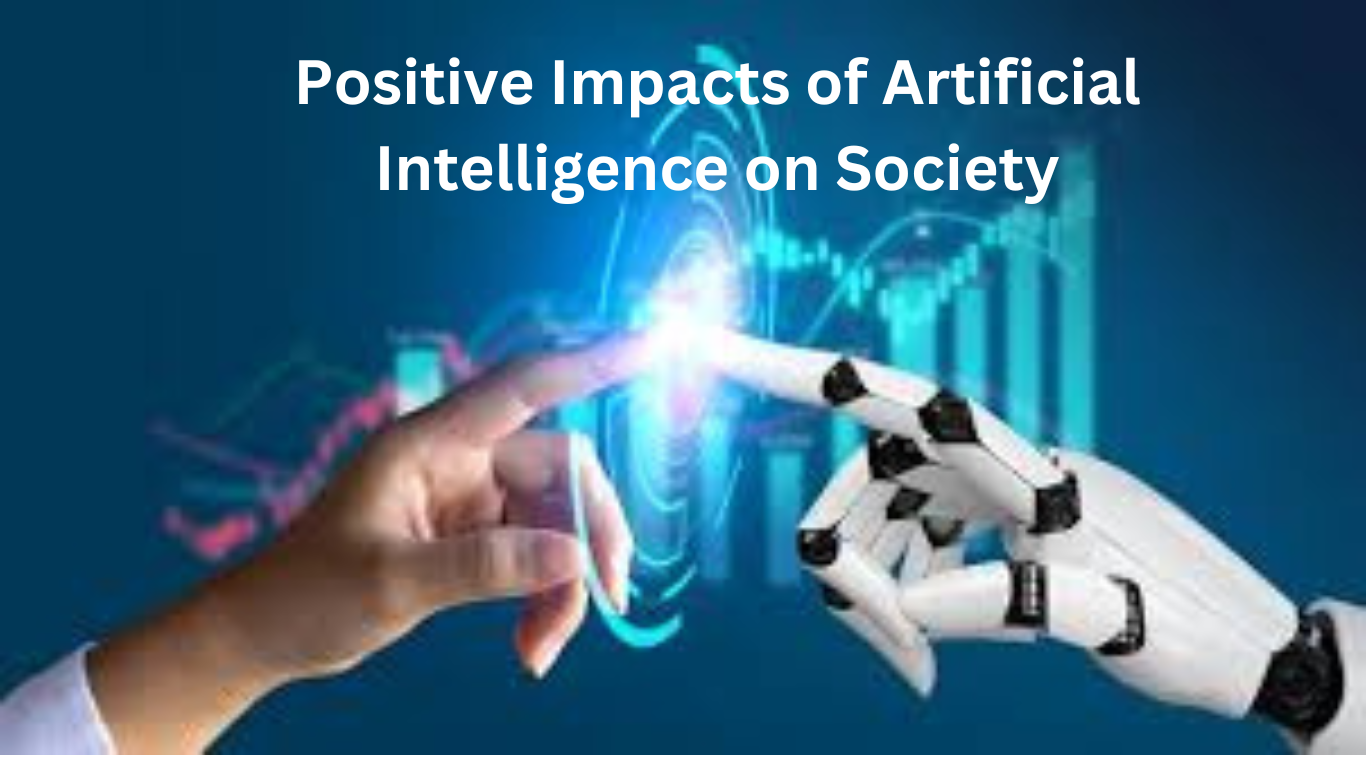Tech
Illuminating Progress: The Positive Impact of Artificial Intelligence

In the dynamic landscape of technological advancements, artificial intelligence (AI) has emerged as a transformative force with the potential to reshape various aspects of our lives. Beyond the concerns and uncertainties, AI has demonstrated a positive impact across diverse fields, contributing to progress, efficiency, and innovation. This article explores some of the notable positive impacts of artificial intelligence.
1. Enhanced Healthcare Diagnostics:
One of the most significant positive impacts of AI is its contribution to healthcare diagnostics. AI-powered tools and algorithms have demonstrated remarkable accuracy in analyzing medical imaging, such as X-rays, MRIs, and CT scans. The ability to quickly and accurately identify anomalies aids healthcare professionals in early detection and diagnosis, leading to more effective and timely treatments. AI has the potential to revolutionize personalized medicine by analyzing vast datasets to tailor treatment plans based on individual patient profiles.
2. Improved Efficiency in Business Operations:
Artificial intelligence has revolutionized business operations by introducing automation and optimization. AI-driven systems can streamline repetitive tasks, allowing human workers to focus on more complex and creative aspects of their roles. From customer service chatbots to automated data analysis, AI enhances efficiency, reduces operational costs, and accelerates decision-making processes within organizations.
3. Advancements in Education:
AI is making significant strides in the field of education, providing innovative tools and resources to enhance learning experiences. Intelligent tutoring systems use AI algorithms to adapt to individual students’ learning styles, providing personalized and targeted instruction. Additionally, AI facilitates the creation of interactive educational content, making learning more engaging and accessible to diverse learners.
4. Environmental Conservation and Monitoring:
Artificial intelligence plays a crucial role in environmental conservation and monitoring. AI algorithms analyze satellite imagery and sensor data to track changes in ecosystems, monitor deforestation, and assess the impact of climate change. These insights enable informed decision-making for sustainable resource management and conservation efforts.
5. Precision Agriculture for Sustainable Farming:
In agriculture, AI is driving the development of precision farming techniques. AI-powered systems analyze data from sensors, drones, and satellite imagery to optimize crop yields, reduce resource usage, and minimize environmental impact. Precision agriculture enhances the efficiency of farming practices, contributing to sustainable and environmentally conscious agricultural methods.
6. Personalized User Experiences:
AI algorithms are behind the personalized user experiences that have become integral to various online platforms. From content recommendations on streaming services to personalized shopping suggestions, AI analyzes user behavior and preferences to tailor experiences. This not only enhances user satisfaction but also contributes to increased engagement and loyalty.
7. Enhanced Cybersecurity Measures:
The increasing sophistication of cyber threats necessitates advanced cybersecurity measures, and AI has proven to be a valuable ally in this domain. AI-driven security systems can detect and respond to threats in real-time, learning from patterns and anomalies to fortify defenses. This proactive approach enhances the resilience of digital infrastructures against evolving cyber threats.
8. Accelerated Drug Discovery in Pharmaceuticals:
AI is revolutionizing the pharmaceutical industry by expediting the drug discovery process. Machine learning algorithms analyze vast datasets, including molecular structures and biological interactions, to identify potential drug candidates. This accelerates the research and development phase, reducing the time and costs associated with bringing new medications to market.
9. Assistance for People with Disabilities:
Artificial intelligence has the potential to improve the lives of individuals with disabilities by offering innovative solutions. Voice recognition technology, natural language processing, and computer vision applications enable assistive technologies that empower individuals with visual or motor impairments. These AI-driven tools enhance accessibility and inclusivity in various aspects of daily life.
10. Innovation and Technological Advancements:
The positive impact of artificial intelligence is not limited to specific industries; it extends to fostering innovation and technological advancements across the board. AI-driven research and development lead to breakthroughs in diverse fields, driving progress and opening new frontiers for exploration and discovery.
In conclusion, the positive impact of artificial intelligence is multifaceted and continues to unfold as technology evolves. From healthcare and education to environmental conservation and business operations, AI contributes to advancements that have the potential to enhance the quality of life for individuals and the sustainability of the planet. As society navigates the ethical considerations and challenges associated with AI, the positive outcomes underscore its role as a catalyst for positive change and progress.
-

 US News2 months ago
US News2 months agoThe Evolution and Impact of SimCity Forums on the Gaming Community
-

 Fashion2 months ago
Fashion2 months agoCelebrity Style Spotlight: Iconic Slip Dress Moments of 2024
-

 Fashion4 months ago
Fashion4 months agoMercedes Blanche: A Guide to Her Impact on the Boys
-

 Business5 months ago
Business5 months agoUnderstanding Cloudiness in Urine: Causes, Symptoms, and Treatment
















